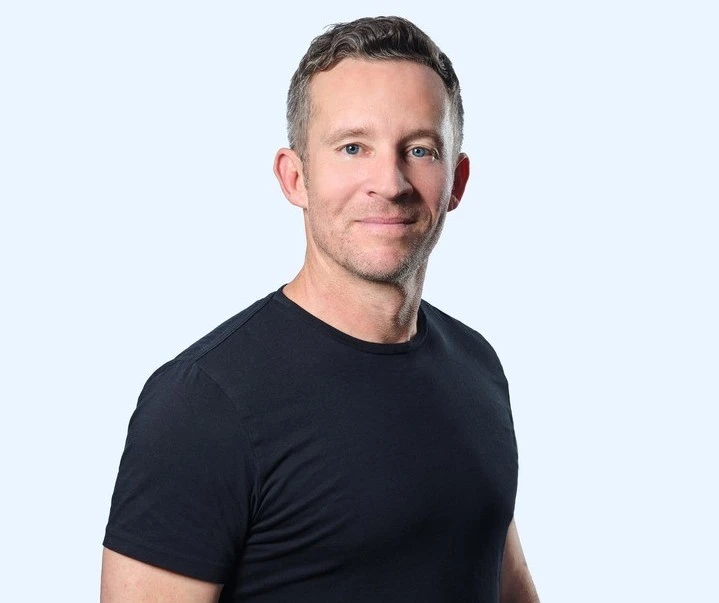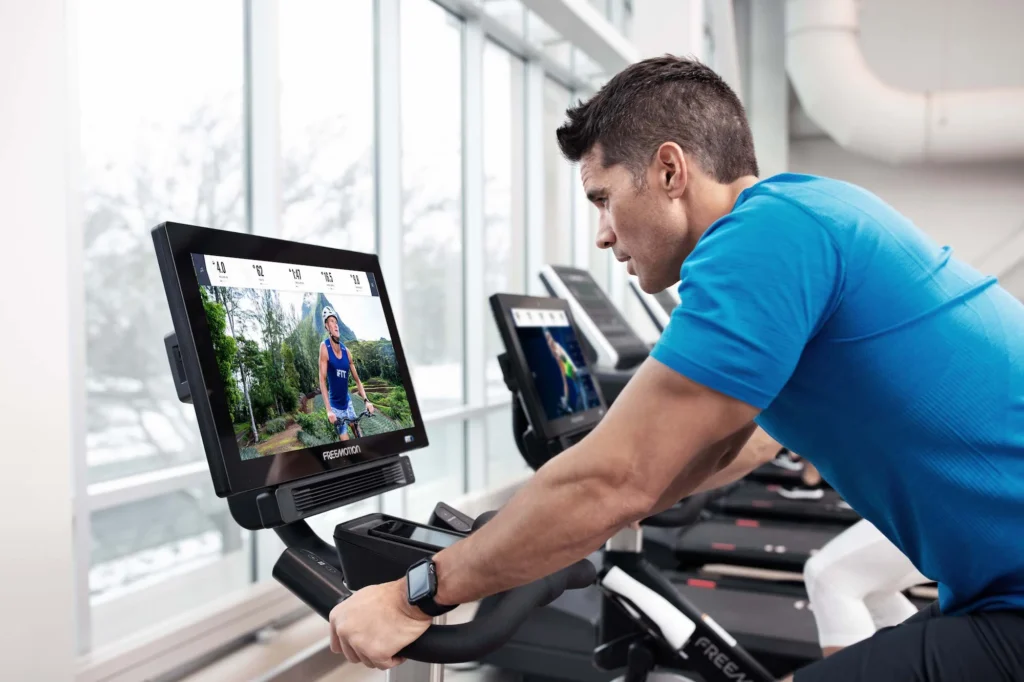CEO Corner: iFIT’s Kevin Duffy on the ‘World’s Most Effective’ Fitness Platform

Duffy and the iFIT team are leaning into AI, digital content and hardware integrations to build the ultimate fitness experience
A longtime audio industry executive, Kevin Duffy joined health and fitness company iFIT a little over a year ago with some lofty ambitions.
“Our vision is to create the world’s most effective fitness platform,” Duffy, who took over as iFIT CEO in October 2022, tells Athletech News.
To accomplish that goal, Duffy and the iFIT team will lean on the brand’s massive catalog of proprietary fitness content, as well as equipment from iFIT-owned brands including Freemotion Fitness, NordicTrack and ProForm.
Under Duffy’s watch, iFIT also plans to lean further into artificial intelligence. The Utah-based company recently announced the launch of its AI Coach, a tool designed to help iFIT users achieve their fitness goals with personalized and adaptive training.
Athletech News spoke with Duffy about why he joined the fitness industry after a long career in audio, his long-term vision for iFIT and the state of connected fitness post-pandemic.
The following conversation has been lightly edited for clarity and length.
Athletech News: Can you tell us a bit about your background and why you decided to join iFIT?
Kevin Duffy: I was at a company called Sound United for almost 20 years, serving as the CEO for the last six years. We were the owner of premium and luxury audio brands, like Bowers & Wilkins, Denon, Marantz, Polk Audio and others. That company was sold in April of 2022. Six months later, in October 2022, I joined iFIT.
I really like being in “passion businesses,” or businesses that are enthusiastic about something. In audio, it was about entertainment, whether music or movies. When this position came up, obviously the passion for health and fitness outcomes is much bigger from a societal perspective.
At the same time, iFIT has some material assets that I thought were interesting. First, of course, the brands. NordicTrack is a very powerful brand that’s been built over decades. Freemotion, which is our brand used for the commercial channel, provides some diversity, along with ProForm, and then we have iFIT, which sits over the top of everything; a lot of capital has gone into developing iFIT content. And we’re backed by L Catterton, which is a prestigious investor in all consumer products, but particularly in fitness.
Lastly, this is an industry that’s in transition, so it’s a transformative opportunity. I’m not a big fan of just sitting still, so for me, all of these things together were exciting.
ATN: How does iFIT stand out from its competitors, whether in the fitness content space or equipment?
KD: On the digital fitness side, our content is unique and so compelling; it’s what we call “destination fitness.” You can walk along the Cliffs of Moher with an Olympian in Ireland – I did that workout recently, which is why I’m using it as an example. It’s pretty cool when you get on a treadmill, you’re running with an Olympian and you’re going to do intervals. She’s like, “Okay, let’s go,” and when she says that, the incline moves on its own; it’s called SmartAdjust. That’s really motivating – it makes me want to run farther than I would on my own. We have content across every geography, all seven continents, and we were nominated for an Emmy for our Mount Everest climb. You can even run with penguins in Antarctica. There’s pretty much nothing you can’t do.

On the hardware side, I come from a business where we made a lot of hardware. It takes a long time, years and years of reps, to get good at making hardware. The fact that NordicTrack has been doing it for 40 years makes it highly differentiated, as well as Freemotion. We will continue to modernize our hardware, but it’s already a big asset. Our Dual Cable Cross product is prevalent in every gym. Our treadmill is definitely the best treadmill in gyms.
ATN: How does iFIT balance the fitness content side of its business with the equipment side?
KD: From my perspective, if you’re on our equipment, great, if you’re not on our equipment, great, people just need to keep working out. That’s the mission. However, I do think iFIT in the gyms is compelling. iFIT today runs on Matrix equipment as an example, which is a partner of ours. There’s no reason it couldn’t run on everybody’s hardware. I think that’s a very logical possibility.
Our hardware products need to be able to stand on their own, but they should also leverage our content and iFIT software.
ATN: What’s your vision for the future of iFIT?
KD: Our vision is to create the world’s most effective fitness platform. That word “effective,” to me, is really important. There’s been so much talk in general about improving health, but from my perspective, we haven’t as an industry improved health outcomes enough. I want to make that more of a reality as I look to the future of our company, and I think we’re at a unique moment in time where technologies such as AI are making that more possible.

ATN: How are you working to turn that vision into a reality?
KD: There’s a huge opportunity to personalize and create more habit formation. Personalization is so important because everybody’s fitness journey is totally different. Some people want to run a 10k, some a marathon, some want to lose five pounds, and some just want to be able to lift their grandchildren.
We’re launching our AI Coach, which personalizes content and habit formation. Creating habits is a very personal experience. I joke sometimes that I just need someone to say to me, “Kevin, you committed to this and you didn’t do it. Why not?” But I bet we’d lose hundreds of thousands of subscribers if we did that with other people because people are motivated in different ways. Some people are motivated by community, some are motivated by achievement and goals. Some people just need a little push, like the AI Coach waking them up and telling them at 6:30am, “You committed to work out at 7:00am, here’s your workout. Are you ready to roll?”
ATN: Given the recent turmoil in the market, how confident are you in the future of connected fitness?
KD: I think we’re in transition. We had this growth pre-COVID, and COVID exacerbated that growth rate to a non-sustainable level for basically everybody in connected fitness. Then we came back to reality post-COVID as gyms opened, which created a lot of turmoil. A lot of inventory was bought during the COVID period, so that’s all working itself through. A lot of that work got done in 2023. Our company is well positioned, having worked through that, although I think the industry still has some ways to go to work through it all.
But if you look out a few years, the future of connected fitness is undeniable. People’s workout routines have become more fluid. It’s hard to believe this won’t be a materially bigger part of the world three to five years from now than it is today. Which is another reason why I came to iFIT.



